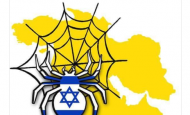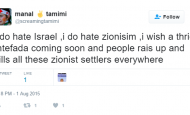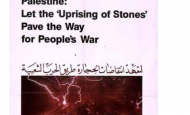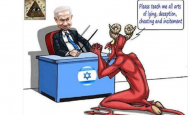Isso Amro: A Pretext for NGO and UN Lawfare
The trial of Isso Amro, which began on July 9 with charges of unlawful activity including violence, is deeply intertwined with the political complexities and narratives of the Palestinian-Israeli conflict. This issue has become an opportunity for advocacy NGOs and the UN officials closely linked to these organizations to falsely impugn the Israeli justice system and distort international law along the way. This campaign is a form of lawfare, exploiting the language of justice and aimed at demonizing and delegitimizing Israel.
Two UN officials, Michael Lynk and Michel Forst (Special Rapporteurs for Palestinian territories and human rights defenders, respectively), released an absurdly prejudicial statement (July 7, 2017) that “If the Israeli military court convicts Mr. Amro on any of the charges against him, the convictions will be stained by reasonable doubts about the system’s ability to ensure justice.” Likewise, Amnesty International prejudged the case before any evidence was presented and announced (November 22, 2016) “If he is convicted we will consider Issa Amro a prisoner of conscience.”
These statements do not point to the quality of the Israeli justice system, but rather to the possibility of an outcome that these ideological advocates do not like. The claims of the UN officials and Amnesty notwithstanding, the legitimacy of the verdict in this case will be established by the evidence presented by the prosecution and defense. Israel’s military courts employ the same evidentiary rules as civilian courts, and their standards are on par or exceed any system in the world. (Under international law, specifically the Geneva Conventions, Israel is required to try Palestinians domiciled in the West Bank and arrested on security offenses in military courts.)
In other words, either Amro violated the law, or he did not. Being automatically labeled a “human rights defender” does not generate immunity from prosecution.
Furthermore, these statements supporting Amro lack credibility. Amnesty reached its conclusion on the basis of claims from the defendant alone, and without evaluating all the evidence – most of which has not yet been made public.
For its part, the statement of the UN Rapporteurs lacks credibility. Neither Michael Lynk nor Michel Forst is an expert on International Humanitarian Law or criminal law, and both have an extensive history of politicized NGO campaigning. Moreover, their judgment in selecting who qualifies as a “human rights defender” under the UN Office of the High Commissioner for Human Rights (OHCHR) definition is highly suspect. In their most recent reports to the Human Rights Council, both Lynk and Forst included Manal Tamimi as a “human rights defender.” They erased the ample evidence showing how Tamimi frequently promotes vicious antisemitism and violent incitement on social media (see examples below), and cannot be considered a human rights defender under any interpretation. In fact, after NGO Monitor filed a complaint against Michael Lynk for including Tamimi in his report, the UN removed her name.
As to the substance of the charges against Amro, Amnesty instantly called them “baseless,” while Lynk and Forst claimed that “many of the charges against Mr. Amro appear to be directed squarely at his lawful right to peacefully protest against the 50-year-old Israeli occupation.”
In contrast to the statements of Amnesty and the Rapporteurs, the charges in the Amro indictment include unlawful activity as well as physical assault.
It is also important to note that the context of occupation applied by Amnesty and the Rapporteurs completely undermines their statements. Under the laws of occupation, Israel is obligated to maintain public order and safety in all the territories under its control. This includes preventing confrontations and requiring permits for demonstrations –as does every other democracy in the world.









